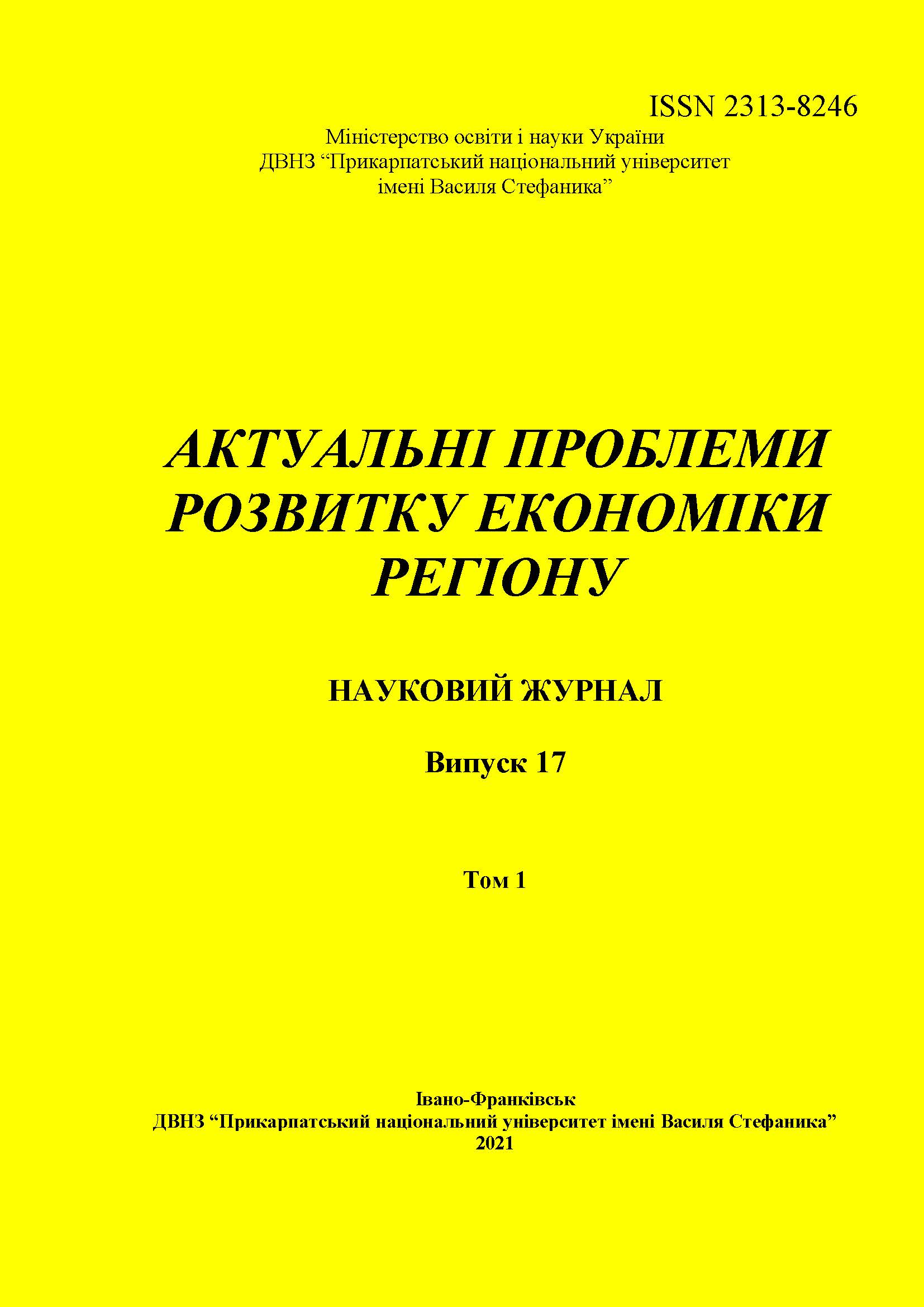DEVELOPMENT OF DIGITALIZATION IN EU AND UKRAINE COUNTRIES
DOI:
https://doi.org/10.15330/apred.1.17.40-48Keywords:
digitalization, modernization, economic development, digitalization indexAbstract
The rapid development of information and communication technologies in recent decades has led to significant changes in the development of the world economy. These modern technologies permeate all spheres of human life, opening new opportunities for achieving socio-economic development. Digitalization of the economy and society is one of the most dynamic changes of our time, which opens new opportunities in creating business models and at the same time brings uncertainty and various threats associated, in particular, with the social effects of automation of production processes. Digitalization, as a continuous process of convergence of the real and virtual world, is becoming a major driver of innovation and change in most sectors of the economy. The article is aimed at comparing the development of digitalization in the countries of the European Union and Ukraine. The theoretical and methodological basis of the study is the dialectical theory of cognition and a systematic approach to the study of economic phenomena and processes, the theoretical positions of domestic and foreign scientists on the digitalization of society. Scientific research was conducted using the following methods: monographic, dialectical, system-analytical, abstract-logical, comparative, etc.
It is established that the level of digitalization of the country is assessed by a set of factors that are part of the integrated indicator - the Digital Economy and Society index. It is determined by analyzing key indicators: broadband, human capital, Internet use, digital integration, and digital government services.
The analysis shows that the level of digitalization in Ukraine today is at an initial level and is much lower than in the European Union. The Digital Economy and Society index in EU-27 in recent years is at the level of 0.48, and in Ukraine - only 0.18.
The main reasons for the low level of digitalization of our country are identified; economic crisis, underdeveloped infrastructure in this area, low level of education and insufficient level of knowledge in the field of digitalization, imperfection of legislative and institutional support, etc. However, it is established that Ukraine has significant potential for the development of digitalization.
References
2. Qin, J., Liu, Y., & R. Grosvenor. „A Categorical Framework of Manufacturing for Industry 4.0 and Beyond.” Procedia CIRP, no.52, 2016, pp.173–178, doi.org/10.1016/j.procir.2016.08.005. Accessed 23 May 2021.
3. Apalkova, V. V. „Concept of development of digital economy in the European Union and prospects of Ukraine.” European Journal of Management Issues, 23(4), 2015, pp.9-18.
4. Rudenko, M. V. „Digitalisation of economy: new opportunities and perspectives.” Economy and state, no.11, 2018.
5. Shcherbatenko, O. “Prospects and obstacles of the digital economy in Ukraine.” (2018). Nachasi, nachasi.com/2018/01/29/what-makes-ukraine-digital/. Accessed 26 Sept 2021.
6. Veretyuk, S.M., and V.V.Pilinsky. „Identification of priority areas of digital economy in Ukraine.” Scientific notes of the Ukrainian Research Institute of Communications, no. 2, 2016, pp.51–58.
7. Putzenteilo, P.R., and O.O.Gumenyuk. „Digital economy as the newest vector of reconstruction of traditional economy.” Innovative economy, 5-6 [75], 2018, pp.131-143.
8. Ryzhenko, O., and V.Fischuk. „How the digital economy will change Ukraine.” Economic truth, 2018, www.epravda.com.ua/columns/2018/01/16/633057. Accessed 26 Sept 2021.
9. Digital Agenda for Europe. Luxembourg: Publications Office of the European Union, 2014. URL: https://eclass.uoa.gr/modules/document/file.php/ECON331/NTKE-3.1.%20The%20European%20 Digital % 20Agenda%20%28EU%29.pdf. Accessed 26 Sept 2021.
10. Digital Economy and Society Index (DESI) 2020. Thematic chapters, eufordigital.eu/wp-content/uploads/2020/06/DESI2020Thematicchapters-FullEuropeanAnalysis.pdf. Accessed 26 Sept. 2021.
11. 2020 International Digital Economy and Society Index - SMART 2019/0087 Luxembourg, Publications Office of the European Union 2020, file:///C:/Users/User/Downloads/i_desi_2020_0087_final_report_CF99179F-A5B7-6ABF-2C1E8CB44E0. Accessed 26 Sept. 2021.
12. Digital economy: trends, risks and social determinants. Razumkov Center, 2020.
Downloads
Published
How to Cite
Issue
Section
License
- Authors retain copyright and grant the journal right of first publication with the work simultaneously licensed under a Creative Commons Attribution NonCommercial NoDerivs 4.0 Unported License that allows others to share the work with an acknowledgement of the work's authorship and initial publication in this journal.
- Authors are able to enter into separate, additional contractual arrangements for the non-exclusive distribution of the journal's published version of the work (e.g., post it to an institutional repository or publish it in a book), with an acknowledgement of its initial publication in this journal.
- Authors are permitted and encouraged to post their work online (e.g., in institutional repositories or on their website) prior to and during the submission process, as it can lead to productive exchanges, as well as earlier and greater citation of published work (See The Effect of Open Access)


